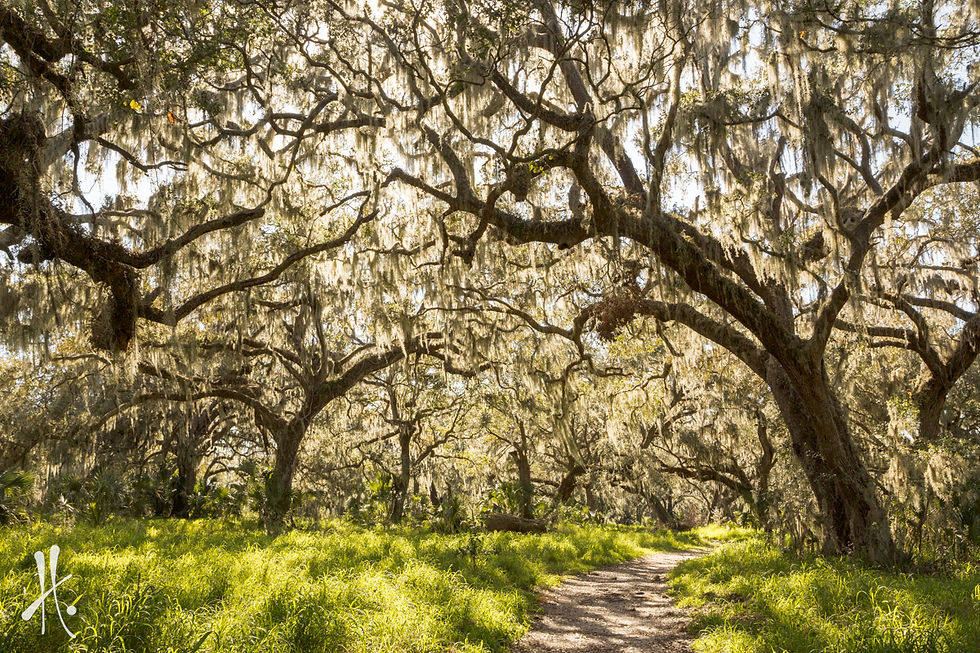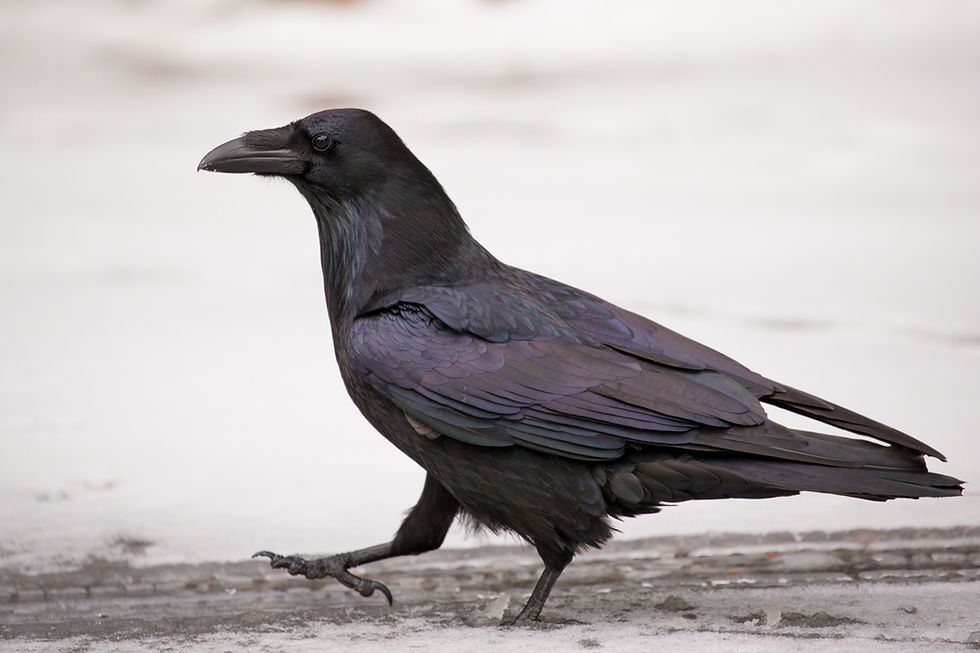Light at the end of the tunnel
- Helen E. Grose
- Mar 4, 2023
- 7 min read
Updated: Jan 30, 2024
We didn't get the dump of snow here in Muskoka that we were expecting, so I'm not sure if that counts as March coming in like a lion... but I sure hope it goes out like a lamb! With this yoyo weather, I've found it difficult to acclimatize to winter this year and I'm definitely looking forward to spring. Can you relate?
With spring comes the busyness of workshops, private lessons and tours, and I'm eager to go on this year's adventures in Algonquin Park, Muskoka, Lake Superior, and Nunavik. If you haven't seen this year's line-up of photography adventures, you can check them out here: www.helengrose.ca/photography-workshops
Gearing up for these means I've been chatting with lots of clients lately. And I'm hearing a common theme expressed in a variety of ways. For some, it's the frustration of feeling stuck and not advancing - they feel their skills have plateaued. For others, it's the frustration of information not sticking - they feel they're not developing skills. These feelings aren't unique to photography. I think we've all felt them at one time or another throughout our lives - often more than once! I found myself in a similar situation towards the end of last year, so I wanted to share a bit of my story.
We naturally compare ourselves with others, rather than looking solely at our own progress on our own journey.
Whether we do something as a profession or a hobby, and whether we're at the beginning, middle, or well into our journey, we all experience moments of frustration, doubt, and lack of self confidence. While social media can be a great place for inspiration, it can also be discouraging. It can feel like everyone else has their sh!t together, has no issues, and is loving life. Sometimes it takes reminding ourselves that what we're seeing is only the good, but when we're feeling stuck, that can be hard to remember. We naturally compare ourselves with others, rather than looking solely at our own progress on our own journey.
As much as I love Algonquin Park - and I do, very much! - most of the time I was spending there was with clients. I had scheduled very little time for myself to create my own images and to explore and deepen my own personal relationship with my craft and myself. As a result, I started to feel "stuck". Whenever I tried to schedule my own time, something got in the way. One time, it was the stress of a potential tornado ripping through the park when I was camping in my small trailer. Another time, it turned into more of a social gathering with a group of friends - fun, but didn't accomplish my goal. And sometimes it simply felt like I couldn't get a moment of solitude even in the wilderness.
Paired with this was a bit of frustration with my ageing gear. To be clear, I don't advocate upgrading your equipment frequently. Too often, people purchase the latest model before they've even learned how to use or fully maximize what they have. But after almost a decade with my camera, and the leaps and bounds in technology between then and now, my frustration was definitely rising. I had also had the benefit of using a newer model and adapting my style to fit its improved capabilities, so I knew first hand what I was missing. Going backwards in technology is not fun!
My familiarity meant I was doing the same things in the same way over and over again.
When you've worked with a piece of equipment for almost a decade, you know it intimately. I could operate it with my eyes shut! Everything was second nature, requiring little thought. What I ended up realizing is while it's good to know things inside and out, it can sometimes be a hindrance. My familiarity meant I was doing the same things in the same way over and over again. I was neither learning nor growing. No wonder I felt stuck!
So, I made the decision to purchase a new camera. While I was excited, it was a bit of a double-edged sword. It was an unplanned purchase at the end of the year. Still, I knew it was the right decision for my business, my craft, and me.
After my camera arrived, a new frustration arose. I spent time here and there taking my new camera "out for a spin". However, I was disappointed every time I came home. Part of it was the subject matter, but the bigger part was the results. I wasn't getting the images I was expecting... and I wasn't even getting the results I used to get. Ugh!! A pit started to grow in my stomach. Did I get the right camera for me? Should I have just stuck with my old gear? Do I just suck? I was 100% questioning my abilities.
So what happened? Well, for one, I had expected to pick up this brand new camera with brand new technology and operate it with the same confidence as I did with the camera I'd had for almost 10 years. In the words of Julia Roberts in Pretty Woman: Big Mistake. Big. Huge!
I needed to do what I always recommend to my clients - RTFM!
I needed to learn how to operate my new camera. And, duh, I needed to do what I always recommend to my clients - RTFM (read the frickin' manual!). I spent hours reading about it, going through the menu options, checking out YouTube videos, and testing it. I also realized that I need to immerse myself in photography for a while with willing subjects that would allow me to test different scenarios. I spent 11 days in Florida visiting park after park. And the more time I spent with my camera, the more I started to fall in love with it. My results improved immensely.
Each day, I got more excited to head out. Each day, I saw improvements. Each day, I started to feel I was breaking away from being stuck. I finally started to see the light at the end of the tunnel.
Identifying why you're stuck is imperative for determining how to unstick yourself.
Being stuck can be a result of one thing, or a combination of many. Identifying why you're stuck is imperative for determining how to unstick yourself. I've often found it fairly simple to identify in others, mostly around the language they use. Things like:
I go out as much as I can, but my time is limited.
I'm part of a photography group, but it's not very interactive.
There's not much to photograph near me.
My camera is entry-level/old, but I can't justify an upgrade.
I got a new camera, but I don't know how to use it.
My images are okay, but they're not good enough to post.
So what's your excuse? What are the things you say to yourself and others? Write them down! Then after you've written them, play devil's advocate. If you struggle doing this, try asking a friend.
Here were some of my excuses:
1. I feel like I've maxed out my gear, but I can't afford a new camera.
If you feel your gear is not performing to the level you'd like, then you're probably not creating the images you want or need to. Can you afford to miss the shots?
It's a tool you require for your business. In order for your business to evolve and remain relevant, you need to upgrade your equipment from time to time.
2. I am too busy working to get out to focus on my creative work.
Your creative work is also work, so you need to make time for it.
To avoid burnout, and to perform well professionally, you need to take time to fulfil your personal needs.
3. I'm bored with my subjects.
Are you really bored with your subjects, or is it that you're doing the same old thing and not thinking creatively, or trying something new?
Nothing will change if you don't change what you're doing!
Are you feeling stuck? Here are some ideas to help get you back on track.
Try something new:
A new subject -- it can be specific such as dogs at the dog park, or all the different signs in your area, skateboarders, or individual trees, or it could be a general genre you haven't tried - macro, landscapes, portraits, architecture, night sky etc.
A new place -- a local park you haven't visited, a different city/province/country
Rent different equipment, or borrow from a friend
Set yourself a goal or project:
Photograph the sunrise / sunset every day for one week from the same place
Make it your mission to photograph every bird that comes into your yard
Shoot subjects only at eye-level, or from a bird's-eye view
Hike every trail or visit every waterfall in your area
Take one photograph every single day
Shoot ONLY at a specific focal length e.g. only take images at 50mm
Choose a new design element each week and make photographs including them e.g. leading lines, triangles, texture, minimalism, shadows, shape and form
Immerse yourself in photography & actively work on improving:
Join an ACTIVE photography club that fits your lifestyle (a club that meets on Tuesdays at noon and does outings on Thursday at 9 a.m. won't work for you if you're working 9-5 M-F)
Spend your entire day off with your camera, photographing whatever's around you
Take a small group photography workshop or hire a photography instructor
Book a trip with the purpose of going places specifically for photography
Schedule time with your camera -- an hour a day, whether that's taking photos, reading about your camera, going through the menus, experimenting with different settings
Have someone review your portfolio and offer suggestions
Most importantly, don't compare yourself with others! We use different equipment, have different opportunities, we work with different budgets, have different goals, different perspectives and, most certainly, different tastes. Acknowledge where you are and where you'd like to be, then come up with a plan that will help you achieve your goals. Nothing will change if you don't change what you're doing! You need to walk forward before you will start to see the light at the end of the tunnel.
Cheers,
Helen






Comments